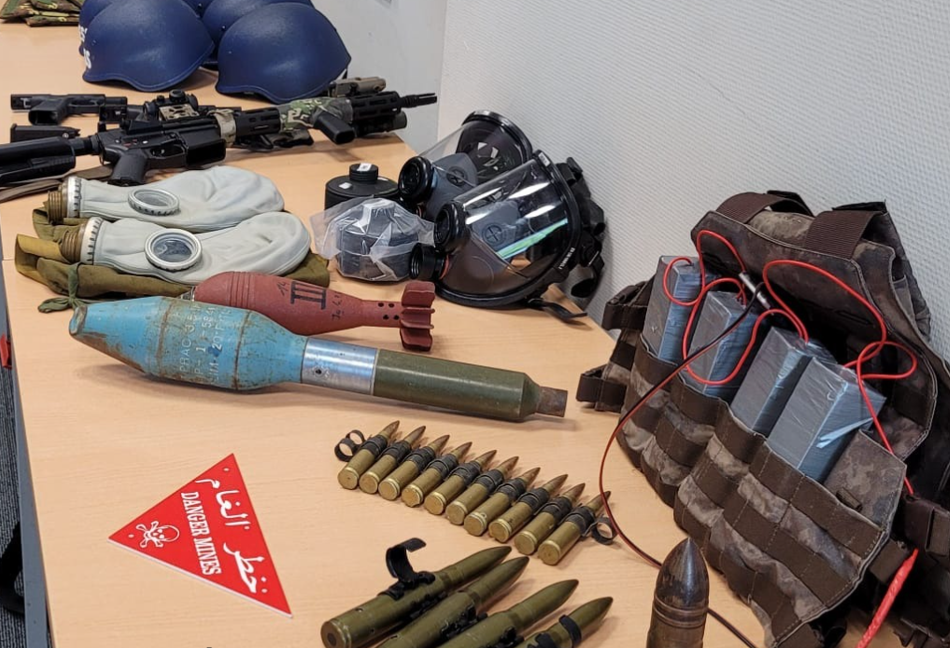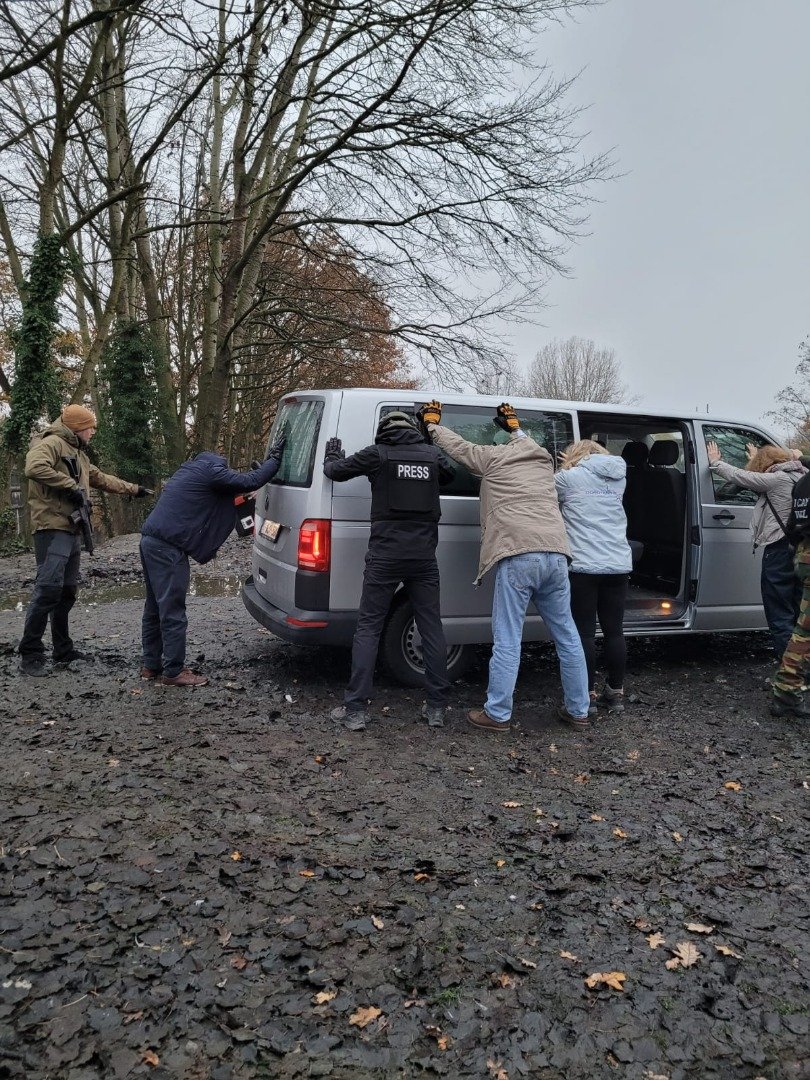HEAT MODULES AND TOPICS
Heat Modules And Topics
Heat Modules And Topics
The BLUESPEAR Hostile Environment Awareness Training (HEAT) programme comprises 5 modules divided in various topics such as deployment to hostile regions, situational awareness, cultural awareness, communication, mobile security and checkpoints, weapons and explosives awareness, orientation and navigation, protests and demonstrations, kidnapping and surviving captivity, various scenarios and 1 field training exercise (final day).
Our HEAT programme spans four days and three nights, featuring a comprehensive schedule of expert-led lectures, hands-on practical exercises, and immersive simulations. Participants will gain critical skills in risk assessment, situational awareness, medical aid in austere environments, and crisis response ensuring they are well-prepared for challenging field conditions.
Good to know
- No 9 to 5 HEAT
- No comfort zone
- No luxury accommodation
- Breakfast · Lunch · Dinner is a group effort
- Teamwork and collaboration are at the core
- Bring along your sleeping bag · head lamp · towels and toiletries · sportswear · sufficient reserve clothing
- Your helmet and flack jacket if any
- Good spirit and motivation
A glance into some of our topics
Preparing professionals for complex and challenging environments.

Medical Training and Care Under Fire
Rapid assessment, decisive action, and the ability to stabilize injuries under pressure can save lives. The BLUESPEAR HEAT training equips you with essential lifesaving skills, from stopping severe bleeding and treating trauma to managing shock and evacuating casualties safely.

Weapons and Explosives Awareness
Participants will be familiarized with the characteristics of different types of weapons, mines, unexploded ordnance (EXO) and improvised explosive devices (IED).

Checkpoint Behaviour and Ambushes
During this topic participants will identify warning signs of potentially hostile or illegitimate checkpoints and understand the types, tactics, and indicators of ambush scenarios in conflict settings.

Kidnapping and Surviving Captivity
This topic is designed to provide the participants knowledge about the realities associated with the risk of abduction, the psychology of captors and how to cope with violence and psychological maltreatment.
Why is HEAT Training necessary?
Security incidents targeting aid workers and journalists have significantly increased in recent decades, including violent crimes, natural disasters, major road accidents, violent demonstrations, and abductions. As a result, operating safely in these fragile and hostile regions requires preparation, preparedness, and training. That’s why our Hostile Environment Awareness Training programme is designed to enhance knowledge and skills for working safely in complex and hostile environments.
This training is particularly relevant for those working within the context of an international institution or humanitarian organization, journalists and media professionals, as well as businesses and major corporations. Ultimately, HEAT ensures that individuals have the necessary knowledge, skills, and confidence to perform their tasks in the field, thereby minimizing the risk of injury, harm, or death.
This comprehensive training programme goes beyond basic safety training and provides practical, hands-on experience that simulates real-life situations. By participating in HEAT, individuals can develop the necessary skills to operate safely in high-risk environments.
The BLUESPEAR HEAT methodology is designed to prepare humanitarians, journalists, and other professionals for working in high-risk or conflict zones. Our HEAT programme is based on comprehensive, immersive training that focuses on equipping participants with the necessary skills to navigate and stay safe in hostile environments.
The course combines theoretical knowledge with practical, hands-on field exercises, incorporating realistic scenarios that mirror the challenges encountered in dangerous regions. By focusing on a range of potential threats and risks, participants are trained to effectively manage crisis situations, improving their personal security and operational effectiveness.
Our HEAT programme can be tailored to meet the specific needs and contexts of different organizations, ensuring that the training aligns with the unique challenges faced by their staff. This approach enhances the overall impact of the training, providing participants with the tools and confidence to operate successfully in challenging and volatile settings.
